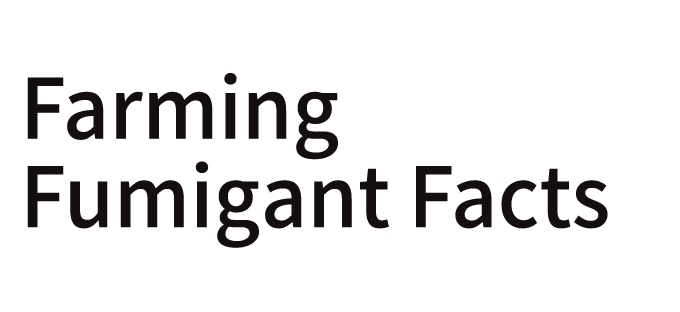About Fumigants
Fumigants are broad-spectrum pesticides used to manage pests and diseases. According to the California Department of Pesticide Regulation, fumigants can be used as insecticides, fungicides, disinfectants, nematicides, herbicides, or rodenticides. They are applied in a variety of settings, including homes, healthcare facilities, food facilities, and agricultural environments to mitigate vector-borne or animal-borne diseases and to support crop growth and management.
California has the most stringent standards in the nation governing the use of fumigants on farms.
In agriculture, TELONE (1,3-Dichloropropene) and chloropicrin are among the most commonly used fumigants to protect crops. On farms, fumigants are used to cleanse the soil of diseases, pests—such as nematodes—and weeds.
Why is this important? Because these soil pests and diseases have the potential to significantly damage or even kill trees, vines, and plants if left unchecked.
Have you ever seen a plant that was flourishing and then suddenly died? That could be the result of a soil pest or disease. Now, imagine this kind of die-off happening to a crop that your livelihood depends on.
About Chloropicrin
What is Chloropicrin?
Chloropicrin is a fumigant used to manage nematodes—parasitic, microscopic worms that cause billions of dollars in damage to agricultural crops annually—as well as soil diseases, including Fusarium and Verticillium Wilt, and various weeds. Chloropicrin is generally used in combination with other fumigants, such as TELONE, to improve efficacy.
How Does Chloropicrin Work?
Chloropicrin is usually applied in combination with other fumigants, such as Telone. Fumigants are applied weeks prior to planting and are either injected into the soil or delivered through a drip irrigation system. Upon application, the fumigants immediately convert from a liquid to a gas and disperse evenly throughout the soil. This creates a clean environment for plants, trees, and vines to grow without the threat of soil pests and diseases.
Fumigant pesticides are not sprayed. They are classified as restricted materials and can only be applied on farms by trained, certified applicators under a permit from a County Agricultural Commissioner. California has the most stringent standards in the nation governing the use of fumigants on farms. Click here for more information about fumigant pesticide standards
What Crops Are Protected from Soil Pests and Diseases by Soil Fumigation?
A wide range of California crops rely on chloropicrin and other fumigants. These include beets, broccoli, Brussels sprouts, carrots, peppers, fruit and nut trees, grapes, melons, nursery plants, potatoes, raspberries, spinach, strawberries, tomatoes, and wine grapes, among others.
